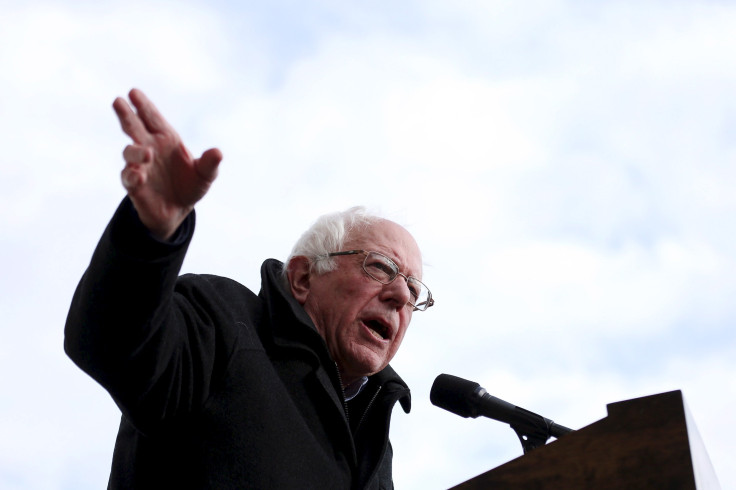Bernie Sanders Criticized By Hillary Clinton Adviser He Tried To Block From Job

A top official for Hillary Clinton’s campaign dismissed the Wall Street reforms offered by her opponent, Bernie Sanders, as weak. The comments Monday represented an attack on the core of Sanders’ populist message, but were also notable for the messenger: a former Goldman Sachs executive and pro-deregulation voice in Bill Clinton's administration whom Sanders had once sought to block from getting a top regulatory job.
An email sent to Clinton supporters from Gary Gensler, the campaign’s chief financial officer, accused Sanders of having “taken a hands-off approach” on the “shadow banking” sector, a broad category of companies offering financial services outside the traditional regulatory system that includes, he wrote, “some of the riskiest institutions and activities in our economy.”
The Clinton campaign recently held a fundraiser with a top executive at Blackstone, one of the world’s largest shadow banking institutions.
Sanders’ campaign spokesman Michael Briggs said in response that the independent senator from Vermont “won't be taking advice on how to regulate Wall Street from a former Goldman Sachs partner and a former Treasury Department official who helped Wall Street rig the system.”
Clinton’s campaign defended Gensler, saying he “pushed hard to regulate derivatives after the 2008 financial crisis.” But he had previously supported deregulating the risky financial products, like credit default swaps, as a top Treasury Department official under former President Bill Clinton. Sanders cited that action when he tried in 2009 to block Gensler’s appointment to lead the U.S. Commodity Futures Trading Commission, the agency that oversees the derivatives market.
“While Mr. Gensler is clearly an intelligent and knowledgeable person, I cannot support his nomination,” Sanders said as he announced he had placed a hold on Gensler’s bid.
Two months later, after Gensler had answered questions from Sanders — writing that he hoped to see “a broad regulatory regime that covers the entire over-the-counter derivatives marketplace” — Sanders lifted the hold.
"The commitments I received from Mr. Gensler along with President Obama's strong plan to regulate financial markets demonstrate the administration's determination to make sure that the financial mess that we are in never happens again," Sanders said.
Gensler was seen as a tougher regulator than some other Obama aides. However, Bloomberg News reported in 2013 that in negotiations over derivatives rules, Gensler ultimately “softened his demands” and forged a compromise with European officials that meant “American banks will be able to sell derivatives overseas without direct U.S. scrutiny.”
With the first-in-the-nation Iowa caucus drawing near, and with films like “The Big Short” spotlighting the financial industry’s role in the U.S. economic meltdown, the Clinton campaign has repeatedly sought to undermine Sanders’ image as an anti-Wall Street populist.
Hillary Clinton slammed Sanders for voting for a bill that included provisions deregulating the derivatives industry. That legislation, which was backed by Bill Clinton, was buried in an unrelated spending bill that needed to pass in order to prevent a government shutdown.
Sanders fired back Tuesday, criticizing Hillary Clinton for accepting speaking fees from the big financial firms. "Fraud is the business model of Wall Street," he said. "The reality is that Congress doesn’t regulate Wall Street. Wall Street and their lobbyists regulate Congress."
© Copyright IBTimes 2025. All rights reserved.






















